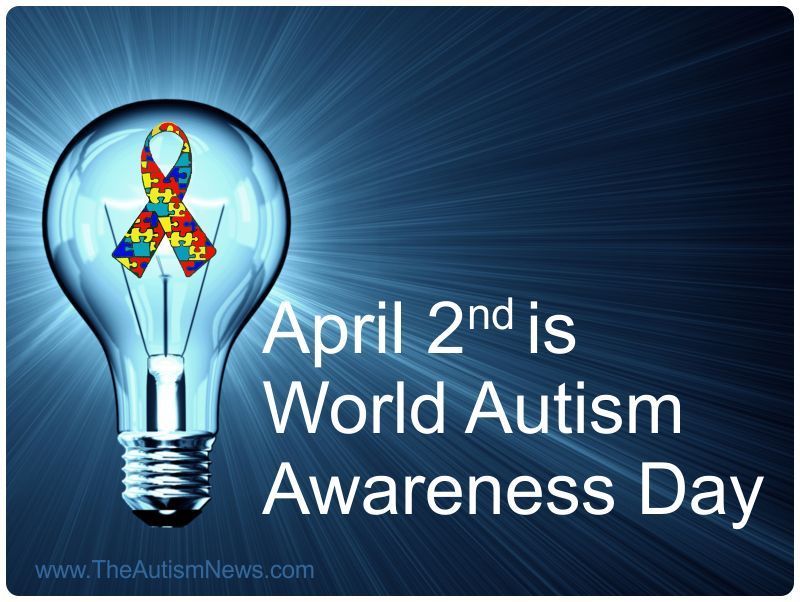
I’m taking part in RJ Scott’s Blog Hop for World Autism Awareness Day. Click the link to see all the other great authors and bloggers taking part.
Since this isn’t the first time I’ve taken part in RJ’s blog hop to raise awareness for autism I decided that I would look more deeply into the history of autism and when it became a recognised condition.
The following pocket history was taken from this site.
Where Did the Term "Autism" Come From?
From the early 1900s, autism has referred to a range of neuro-psychological conditions.
The word "autism," which has been in use for about 100 years, comes from the Greek word "autos," meaning "self." The term describes conditions in which a person is removed from social interaction -- hence, an isolated self.
Eugen Bleuler, a Swiss psychiatrist, was the first person to use the term. He started using it around 1911 to refer to one group of symptoms of schizophrenia.
In the 1940s, researchers in the United States began to use the term "autism" to describe children with emotional or social problems. Leo Kanner, a doctor from Johns Hopkins University, used it to describe the withdrawn behaviour of several children he studied. At about the same time, Hans Asperger, a scientist in Germany, identified a similar condition that’s now called Asperger’s syndrome.
Autism and schizophrenia remained linked in many researchers’ minds until the 1960s. It was only then that medical professionals began to have a separate understanding of autism in children.
From the 1960s through the 1970s, research into treatments for autism focused on medications such as LSD, electric shock, and behavioural change techniques. The latter relied on pain and punishment.
During the 1980s and 1990s, the role of behavioural therapy and the use of highly controlled learning environments emerged as the primary treatments for many forms of autism and related conditions. Currently, the cornerstones of autism therapy are behavioural therapy and language therapy. Other treatments are added as needed.
What surprised me, but probably shouldn’t have, considering the way that perceived mental health issues have been dealt with in the past, was this revelation. From the 1960s through the 1970s, research into treatments for autism focused on medications such as LSD, electric shock, and behavioural change techniques. The latter relied on pain and punishment. I suppose my shock came from how late in the century we were still considering trying to cure people—and by people I actually mean children—by quite literally beating the condition out of them.
The practise sounds similar to attempts to cure homosexual behaviour several decades earlier. And just as barbaric.
Enough, of the doom and gloom. *inserts photo of rubber ducks to lighten the mood*
 |
| photo credit: alles-schlumpf via photopin cc |
Thankfully, although we live in a time that is not without its issues, the world we live in is, for the most part, more enlightened. And we can do our part by teaching our kids, hell no, teaching anyone we come into contact with, to be open minded and accepting of all and to encourage them to embrace the differences in people.
To raise awareness for World Autism Day and celebrate all things different I’m giving away one copy of Theory Unproven (or another book from my backlist).
a Rafflecopter giveaway

Loved the mini history lesson. And thanks for the ducks. :)
ReplyDeleteThank you for the history lesson and for the fun ducky pic.
ReplyDeleteThank you so much for taking part... all i can grateful for is that Matt was born in a time when understanding was the primary objective... HUGS X
ReplyDeletevery interesting, thanks for the post
ReplyDeleteDUCKS DUCKS DUCKS :D
ReplyDeleteYeah that section you highlighted doesn't surprise me at all :(((( I had no idea Autism had been linked to schizophrenia though, that was interesting. I have to admit, the LSD thing amuses me - just like they used to use tobacco to help with lung ailments O__O
OMG THIS BOOK :D You have no idea how THRILLED I am to see it in print. It's just SUCH GORGEOUS WRITING. (excuse me while I GUSH SOME MORE ABOUT THIS BOOK) *cough*
<3333
Thank for the interesting post (and for the ducks!).
ReplyDeleteI had always wondered where the term came from...
ReplyDeleteTrix, vitajex(at)aol(Dot)com
Neat entry for the raffle:)
ReplyDeleteI know they say electric shock is a bad thing in this article, but it actually does quite a bit of good nowadays and is nothing like what you see in One Flew Over the Cuckoo's Nest. Of course, nowadays it's called ECT.
I am enjoying the blog hop. There is so much great info being shared. Thanks for helping get the word out.
ReplyDeleteflutterfli01 (at) yahoo (dot) com
Great post. Thank you for sharing interesting information about autism. Getting rid of ignorance will be the only way to avoid the barbaric methods and prejudice from the past.
ReplyDeleteThank you for the post and the imformation Autism Awareness is so important and I am learning so much from following the blog hop. I love the duck picture.
ReplyDeleteShirleyAnn(at)speakman40(dot)freeserve(dot)co(dot)uk
Thanks for all the great information on your post! I had no idea that it was linked with schizophrenia for so long. It's so depressing to think of people being treated with shock therapy; it's heartbreaking.
ReplyDeletejczlapin(at)gmail(dot)com
Thanks for the post and new info!!
ReplyDeleteThis comment has been removed by the author.
ReplyDelete